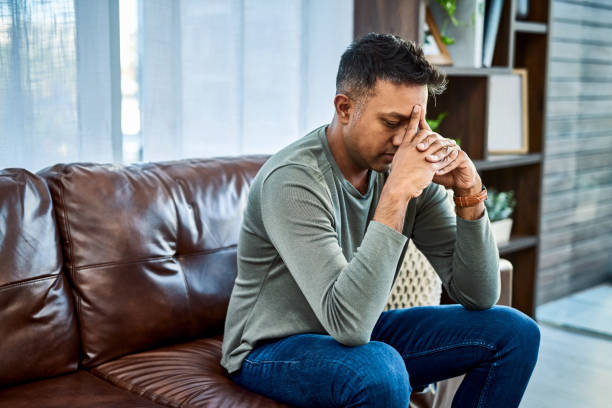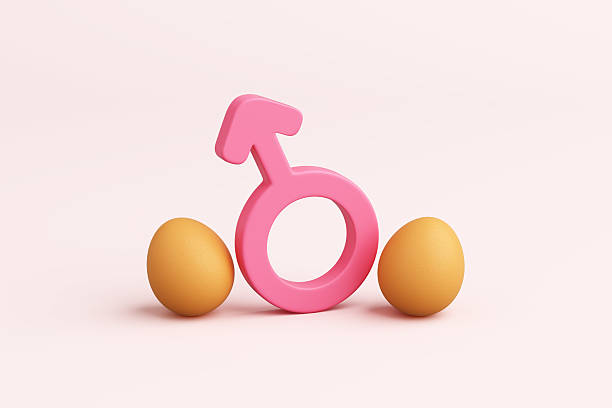Introduction
Erectile dysfunction (ED) is a common issue that affects men of all ages. But did you know your mental health can play a big role in it? Your brain and body work together for a healthy sex life, and when your mind is under stress, it can impact your performance. Feelings like stress, anxiety, or low mood can affect blood flow, hormone balance, and even your desire. Over time, this can make ED worse. The good news is that caring for your mental health can also help your physical health.
In this post, we’ll look at the link between mental health and ED, plus simple, proven ways to support your mind and body. You’ll learn tips you can start today to feel more confident, boost your mood, and improve your overall well-being.
What Is Erectile Dysfunction?
Erectile dysfunction means having trouble getting or keeping an erection firm enough for sex. It happens often, and many men face it at some point in life. This can be a short-term issue or something that lasts longer. It can feel hard to deal with and may upset you. You might notice feelings of worry, stress, or embarrassment.
These emotions can make the problem worse, creating a cycle that is tough to break. ED can also be a sign that your body or mind needs help—like improving blood flow, balancing hormones, or managing your mental health. Knowing the cause is the first step toward finding the right solution.

How Mental Health Affects ED
Stress and Performance Anxiety
Stress and worry can hurt your ability to relax, and that makes it harder to get an erection. When your mind is tense, your body has a harder time responding the way you want it to. Performance anxiety is a common cause of ED. It means you feel nervous or worried about sex before it even happens. You may think, “Will I be able to do it?” or “What if I fail?”
These thoughts can cause your body to release stress hormones that tighten blood vessels and lower sexual desire. That thought alone may be enough to stop things from working. Over time, this can create a cycle where fear of ED makes the problem worse. Learning ways to calm your mind and reduce stress can help break this pattern and improve your performance.
Depression and Low Mood
If you feel sad or have a low mood, your energy and interest in sex can drop. When your mind is weighed down, it can be harder to focus on pleasure or intimacy. Depression can lower your desire by affecting brain chemicals that control mood and arousal. That lack of interest can lead to ED, making sexual activity feel like a chore instead of something you enjoy.
You may also feel less connected to your partner, which can add strain to the relationship. Over time, this emotional distance can make it harder to rebuild intimacy. Addressing low mood through healthy habits, open talks, or professional help can improve both your mental health and sexual well-being.
Anxiety Disorders
Ongoing anxiety can put constant stress on your body, wearing it down over time. It raises stress hormones like cortisol, which can affect blood flow, hormone balance, and sexual desire. When cortisol stays high, it becomes harder for your body to switch into a calm state. This makes getting and keeping an erection more difficult. Anxiety keeps the body stuck in “fight or flight” mode, where your system is focused on survival rather than pleasure.
For healthy sex, your body needs to be in a “rest and relax” mode so blood can flow freely, muscles can loosen, and your mind can focus on intimacy. Learning to manage anxiety can help restore this balance and improve sexual performance.
Why Mental Health Matters for ED
Mind and body work as one, especially when it comes to sexual health. If one is off balance, the other feels it. When ED happens, you may feel shame, guilt, or frustration. These emotions can raise stress and anxiety levels, making it even harder to perform. Over time, this can become a tough cycle: stress → ED → more stress.
Each episode can add to the pressure you feel, which makes relaxing even harder. This ongoing loop can affect your confidence, mood, and even your relationship. Breaking the cycle means caring for both your mental and physical health at the same time, so they can work together in harmony again.
Scientific Evidence
Studies show a strong link between mental health and ED. Research has found that depression can raise the risk of ED by changing brain chemistry, lowering desire, and affecting blood flow. Anxiety and stress are also proven predictors of erectile problems, as they can keep the body tense and the mind distracted. One large review of studies confirmed that men with mental health issues are far more likely to experience ED than those without them.
Another trusted source, the Mayo Clinic, notes that psychological issues are among the most common causes of ED, especially in younger men who are otherwise healthy. This means that treating mental health problems may be just as important as addressing physical factors when it comes to improving sexual performance.

How to Support Mental Health to Help ED
Here are clear, helpful steps.
1. Talk to a Professional
Speak with a doctor, therapist, or counselor if you are dealing with ED. These professionals can look for both physical and emotional causes that may be affecting your sexual health. A doctor can run tests to check blood flow, hormone levels, or other medical issues. A therapist or counselor can help you work through stress, anxiety, or relationship concerns.
Depending on your needs, they may suggest therapy, medicine, lifestyle changes, or simple talk support to guide you through the problem. Having a safe space to discuss your concerns can make it easier to find the right treatment and regain your confidence.
2. Practice Stress-Reducing Habits
Try deep breathing, meditation, or yoga to help your mind and body relax. These activities lower stress hormones, calm racing thoughts, and improve blood flow—important for sexual health. You can also go for walks or do mild exercise like stretching, light cycling, or swimming.
Even 10 minutes a day can boost your mood, ease tension, and lower anxiety. Over time, these small habits can make a big difference in your overall well-being and may help reduce ED linked to stress. The key is to be consistent and choose activities you enjoy, so they become a natural part of your routine.
3. Sleep Well
Aim for 7–9 hours of sleep each night to give your body and mind the rest they need. Good sleep helps restore hormone balance, supports brain health, and boosts mood—all important for sexual performance. When you sleep well, your body repairs itself and lowers stress levels, making it easier to stay energized and focused.
Create a calm bedtime routine to prepare your mind for rest. This can include dimming the lights, reading, gentle stretching, or listening to soft music. Avoid screens before bed, as the blue light can confuse your body’s natural sleep cycle. Over time, better sleep can improve both your mental health and your sexual well-being.
4. Build Connection with Your Partner
Talk openly about your feelings and concerns with your partner. Honest conversations can reduce misunderstandings and help you both feel supported. Share affection that isn’t sexual too, such as holding hands, hugging, or spending quality time together. This builds trust and strengthens your bond.
Being close without the pressure to perform helps relax both of you, making intimacy feel safe and natural. Over time, this emotional connection can reduce anxiety, improve confidence, and make sexual moments more enjoyable for both partners.
5. Healthy Lifestyle Habits
Eat balanced, nutritious food to fuel your body and mind. Choose meals rich in fruits, vegetables, lean protein, whole grains, and healthy fats. These nutrients support good blood flow, hormone balance, and brain health—all important for sexual performance. Cut back on alcohol, as too much can lower testosterone and affect erections.
Avoid smoking, since it damages blood vessels and reduces circulation. Pair healthy eating with regular movement, such as walking, cycling, or light strength training. Together, good food and exercise can lift your mood, reduce stress, and improve both your mental well-being and your erection quality.
6. Use Mindfulness
Focus on the present moment instead of worrying about what might happen next. During intimacy, pay attention to how your body feels—your breathing, your heartbeat, and the touch of your partner. This practice, often called mindfulness, helps quiet racing thoughts and keeps your mind from drifting to fears about performance.
By staying present, you lower worry and make it easier for your body to respond naturally. This can boost pleasure for both you and your partner, creating a more relaxed and enjoyable experience.

Call to Action
Struggling with ED linked to mental health? Don’t wait to get help. Talking to a qualified health professional can be the first step toward feeling better. A doctor can check for physical causes and suggest treatments, while a counselor or therapist can help you manage stress, anxiety, or depression.
These experts can guide you with care and without judgment. Remember, you’re not alone—many men face the same challenge, and support is available. With the right help, you can improve both your mental well-being and sexual health, rebuild your confidence, and enjoy a more satisfying sex life.
Conclusion – Let’s Talk
Mental health and erectile dysfunction often go hand in hand. Stress, low mood, and anxiety can hurt sexual performance by affecting focus, desire, and blood flow. When your mind is tense, it’s harder for your body to respond the way you want. The good news is that small, steady changes can make a big difference. Talking about your feelings with a trusted person or professional can reduce the weight you carry.
Building healthier habits—like regular exercise, balanced meals, and better sleep—can boost energy and improve mood. Staying connected with your partner or friends can also help you feel supported and less alone. Over time, these simple steps can improve both mental well-being and sexual health.
I’d love to hear from you. Do these tips feel helpful? Have you tried ways to relieve stress or improve intimacy? Share your thoughts or questions below. Your experience matters and could help someone else, too.

